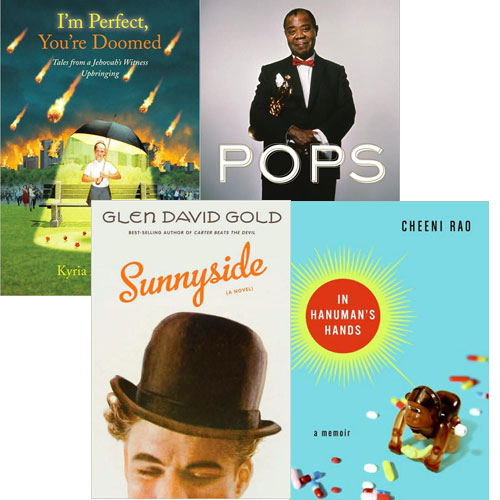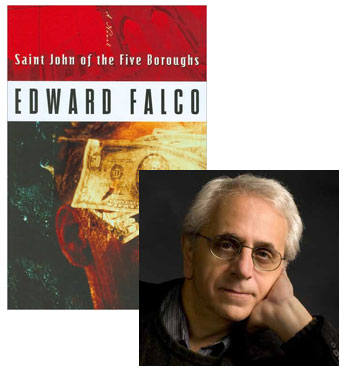Read This: Ten (or so) Favorites of 2009

These aren’t the best books of 2009; I’m not widely read enough to make that particular assessment. But when I was thinking of my favorite books from the last year, they’re the ones that sprang to mind first. It’s mostly non-fiction because that’s what I read professionally for Publishers Weekly all year, but every now and then I did manage to sneak in a novel for fun (or at least find a way to get a Beatrice or GalleyCat post out of it)…
-
Appetite City: This “culinary history of New York” by William Grimes, the former restaurant critic for the Times is sprinkled with fascinating facts about long-gone restaurants and culinary subcultures, all of it making a strong case for New York City offering its residents the most diverse food options of any major metropolis.
-
Blues and Chaos: Robert Palmer (the critic, not the guy who sang “Addicted to Love”) set out to create an overarching definition of American music, “a set of procedures that will allow us to evaluate Charles Ives and James Brown” as he put it back in 1979. It’s a daunting task, perhaps an impossible one, but his best essays and feature stories made it seem achievable.
-
How to Live: I had the pleasure of interviewing Henry Alford about his “search for wisdom from old people (while they are still on this earth)” late last year for PW, and that conversation really underscored for me the empathy that he brought to his own conversations. This is a warm, honest, and heartfelt story about one man making a sincere effort to learn from others.
31 December 2009 | read this |
Ed Falco on Work That Works for Writers

One of the reasons I’m grateful for the existence of Unbridled Books is that it was this independent publishing company that introduced me to the writing of Ed Falco, starting with the short stories in Sabbath Night in the Church of the Piranha and up to his most recent novel, Saint John of the Five Boroughs. Back in November, Ed (and his niece, Edie Falco) did an illuminating interview with PopMatters: “We’re a working class family,” Ed said, “and to have two of us in the arts, and Edie succeeding as famously as she has, and I’m doing OK in my career, it’s nice, it’s fun.” This essay touches upon that point in a roundabout fashion, as Ed looks back at how he worked his way through to finding a job that truly supported his literary pursuits.
As the director of the creative writing program at Virginia Tech, I was recently in an administrative staff meeting convened to review the metrics by which the university measures our department’s performance; and while somebody was talking about something or other, I found myself looking around the room and wondering how I wound up there.
Throughout my twenties I imagined myself as a writer and a poet living on the fringes of mainstream culture. Okay, yes, I had a middle-class family who would always take me in when things got too bad, but, still, I spent most of my twenties going back and forth between working as a laborer and being unemployed, a period of time that included a year traveling throughout Europe and a three- or four-year stint working on horse farms and racetracks. I never made much money, I never had much money, and that was fine with me. I wanted to be a writer. I cared about art and injustice, and I believed that art could address injustice and make a difference. Over time my beliefs have shifted (shifted, not changed), but they haven’t shifted so far that I’ve come to sincerely care about departmental performance metrics. So how did I wind up there? When I asked a friend, a colleague of twenty-five years, he said: “You got old.”
27 December 2009 | guest authors |

 Our Endless and Proper Work is my new book with Belt Publishing about starting (and sticking to) a productive writing practice.
Our Endless and Proper Work is my new book with Belt Publishing about starting (and sticking to) a productive writing practice. 
